When you’re dealing with vehicle maintenance, especially something as crucial as fuel delivery, reliability and quality are everything. After some extensive research, I decided to try the Carter Fuel Pump in my own vehicle.
Whether you’re shopping for a replacement part or looking to boost fuel system performance, it’s a product worth considering. In this review, I’ll walk you through my experience with the Carter fuel pump, from installation to daily use.
Let’s talk about how it compares to other brands, its pros and cons, and some essential maintenance tips to keep it running smoothly.
My Experience With Carter Fuel Pump
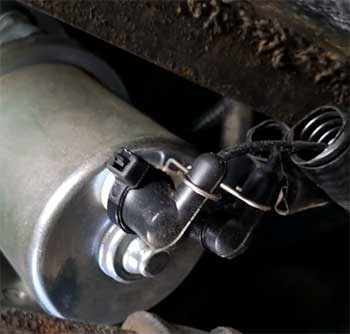
Installing the Carter fuel pump in my Jeep XJ was relatively straightforward, but it wasn’t without its challenges.
One thing that stood out right away was the design of the patented Clean Screen strainer.
This feature is meant to provide up to 40% more dirt-holding capacity compared to competitors, which was a nice peace of mind, especially considering how grimy fuel tanks can get over time.
It’s all about that extra longevity.
That said, dropping the fuel tank to install the pump was not a quick job.
If you’re planning on doing it yourself, I recommend draining as much fuel as possible before starting.
Trust me, you don’t want a heavy fuel tank slipping on you. Once I had the old pump out, I could really appreciate the solid silver fuel sender contact design on the Carter pump. It’s supposed to help with electrical conductivity and improve the fuel sender’s lifespan.
Time will tell, but so far, so good!
- How The Carter Fuel Pump Stacks Up: Performance In Action
Since installing the pump, I’ve noticed a significant improvement in my Jeep’s fuel pressure. Before, it took forever to start, and I’d have to crank it several times before the engine would catch.
Now, it fires right up, and the pressure holds steady around 50 PSI. This was a huge relief, as I was dealing with fuel pressure issues for quite a while.
However, one thing that annoyed me was a slight noise coming from the fuel float after parking. It’s likely due to my tank’s lack of baffles, but still something to be aware of. The noise dissipates after a few moments, but it’s noticeable if you’re paying attention.
Pros of The Carter Fuel Pump
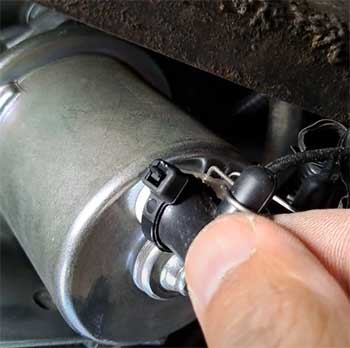
- Superior Dirt-Holding Capacity: The patented Clean Screen strainer is a standout feature. With 40% more dirt-holding capacity, it ensures less clogging and longer life, which makes it a solid option for anyone dealing with older fuel tanks or vehicles prone to dirt accumulation.
- Improved Fuel Pressure: The pump delivers consistent fuel pressure, making starting your vehicle easier and improving overall engine performance. After installation, my Jeep XJ’s fuel pressure went from under 20 PSI to a steady 50 PSI, which made a world of difference in drivability.
- Durability and Quiet Operation: The armature on this pump is over-molded, which helps with balance and reduces turbulence in the fuel tank. The added wire protection also provides a level of reassurance that it’ll last longer, especially when exposed to corrosive fuel blends.
- Inclusive of Accessories: Most applications come with the necessary accessories, such as tank seals, wiring harnesses, and strainers, saving you from the hassle of buying additional parts.
Cons of The Carter Fuel Pump
- Slight Noise from the Fuel Float: As mentioned earlier, there’s a minor noise from the fuel float after parking. While it doesn’t impact performance, it’s something you might notice.
- Boxing and Shipping Issues: Some users, including myself, experienced poor packaging during shipping. While my pump was fine, the retail box was barely holding together, which isn’t ideal when you’re paying for quality parts.
- Requires Tank Removal: Replacing the pump means dropping the fuel tank, which isn’t exactly a beginner-level DIY project. Make sure you have the right tools and help if needed.
Tips: Keeping Your Carter Fuel Pump in Top Shape
While Carter fuel pumps are built for durability, proper maintenance can extend their lifespan even further. Here are some tips to keep in mind:
- Clean the Fuel Tank Before Installation: When you’re replacing a fuel pump, it’s critical to clean the tank thoroughly. Leftover debris can clog the pump and reduce its lifespan. A clean tank means your Carter pump’s patented Clean Screen strainer can do its job effectively.
- Check Fuel Lines for Leaks: Regularly inspect your fuel lines for leaks or damage. Even the best fuel pump can’t compensate for faulty fuel lines, which can lead to pressure drops or unsafe fuel conditions.
- Replace Fuel Filters as Needed: Depending on your vehicle, you may have an external or integrated fuel filter. Make sure you replace it according to the manufacturer’s guidelines to avoid clogging the pump and causing performance issues.
- Monitor Fuel Pressure: If your vehicle starts experiencing hard starts or drops in performance, check the fuel pressure. If it’s lower than it should be, there might be a clog or issue with the fuel pump. Catching this early can save you from more extensive repairs.
How Does Carter Compare To Other Brands?
When comparing the Carter fuel pump with other brands like TruGrade, Herko, and Autobest, there are some key differences in terms of quality, price, and overall performance. Each brand has its strengths and weaknesses, and it’s important to know which one best fits your vehicle’s needs.
- Carter Vs. TruGrade Fuel Pump
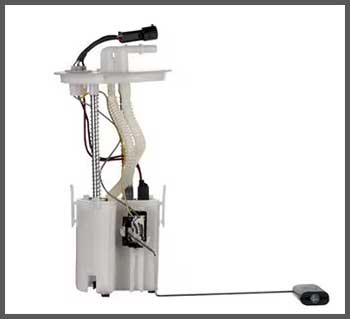
TruGrade is often seen as a budget-friendly option, but it typically doesn’t offer the same level of reliability as Carter.
While both pumps may seem similar at first glance, TruGrade pumps often have shorter lifespans, especially in high-demand vehicles or older models.
One area where Carter excels over TruGrade is in dirt-holding capacity, thanks to its Clean Screen strainer.
If you’re someone who values durability and long-term performance, the extra investment in Carter will save you from more frequent replacements down the road.
- Carter Vs. Herko Fuel Pump
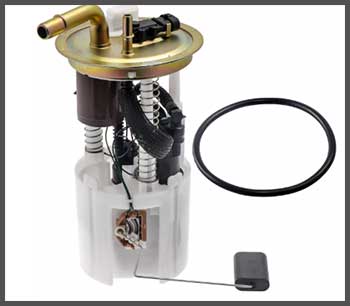
Herko pumps are another popular choice in the aftermarket fuel pump world, especially for those looking for a quick and affordable fix.
However, Herko pumps tend to have mixed reviews when it comes to consistency in fuel pressure, which is crucial for the smooth operation of your engine.
From my research, many users report issues with fuel pressure dropping after a few months of use.
In contrast, Carter pumps are known for maintaining steady fuel pressure, which was evident in my own experience.
The Carter pump’s solid silver fuel sender contact also gives it an edge in terms of electrical conductivity and longevity compared to Herko.
- Carter Vs. Autobest Fuel Pump
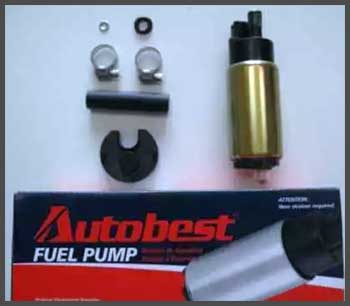
Autobest is another competitor in the fuel pump market, and it’s often priced similarly to Carter.
However, Autobest pumps have been criticized for their less durable construction and louder operation.
Carter, on the other hand, prides itself on delivering quiet operations and durability, thanks to features like the over-molded armature.
This helps reduce turbulence and extends the lifespan of the pump.
If you’re someone who values quiet performance and reliability, the Carter fuel pump is likely the better choice.
Frequently Asked Questions (FAQ)
Carter fuel pumps are manufactured by Carter Fuel Systems, a company with over 100 years of experience in fuel delivery technology. They specialize in OEM and aftermarket fuel pumps for a wide variety of vehicles.
Yes, Carter car parts are considered reliable and offer good value for the money. Their fuel pumps, in particular, are praised for their durability and consistent performance, especially in comparison to more expensive brands like Bosch.
The best brand of fuel pump depends on your vehicle and budget. Carter, Bosch, and Delphi are all reputable brands. Bosch tends to be the OEM standard, while Carter offers excellent performance at a lower price point.
Carter fuel pumps typically come with specific branding and labeling. Look for the patented Clean Screen strainer and solid silver fuel sender contact design. Additionally, Carter pumps often include essential accessories like tank seals and wiring harnesses.
Final Thoughts: Is the Carter Fuel Pump Worth It?
After my experience, I’m convinced that the Carter Fuel Pump is a solid investment for anyone looking to replace a failing pump or improve fuel system performance without breaking the bank.
The patented Clean Screen strainer, reliable fuel pressure delivery, and included accessories make it a standout choice. While it may not be a Bosch, it offers similar reliability at a fraction of the cost.
If you’re dealing with an older vehicle or experiencing fuel system issues, I recommend giving the Carter pump a try. And remember, whether you buy from Amazon, AutoZone, or your local retailer, make sure you’re getting the right fit for your vehicle.
Good luck with your installation, and here’s to smoother starts and better fuel efficiency!

